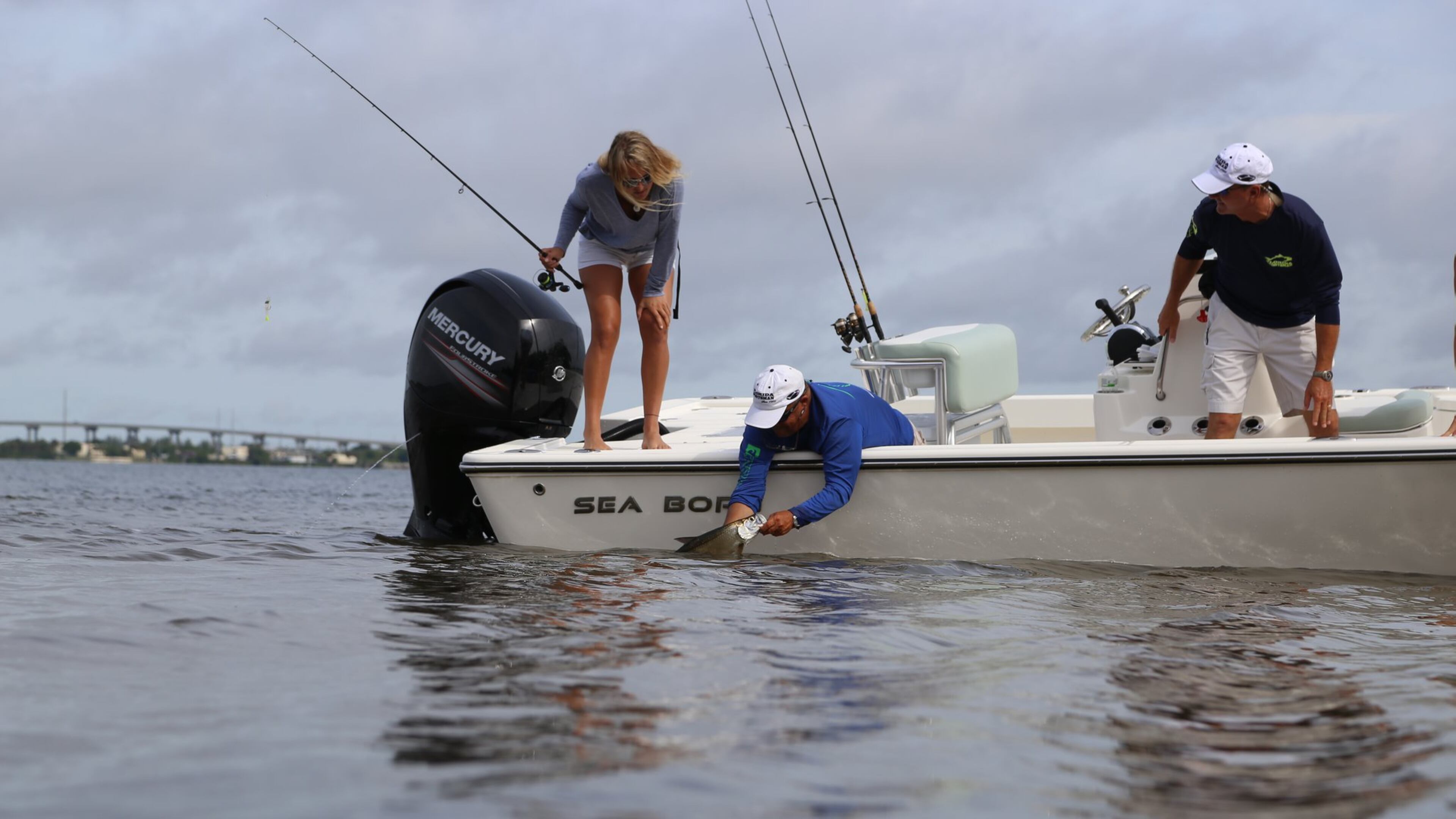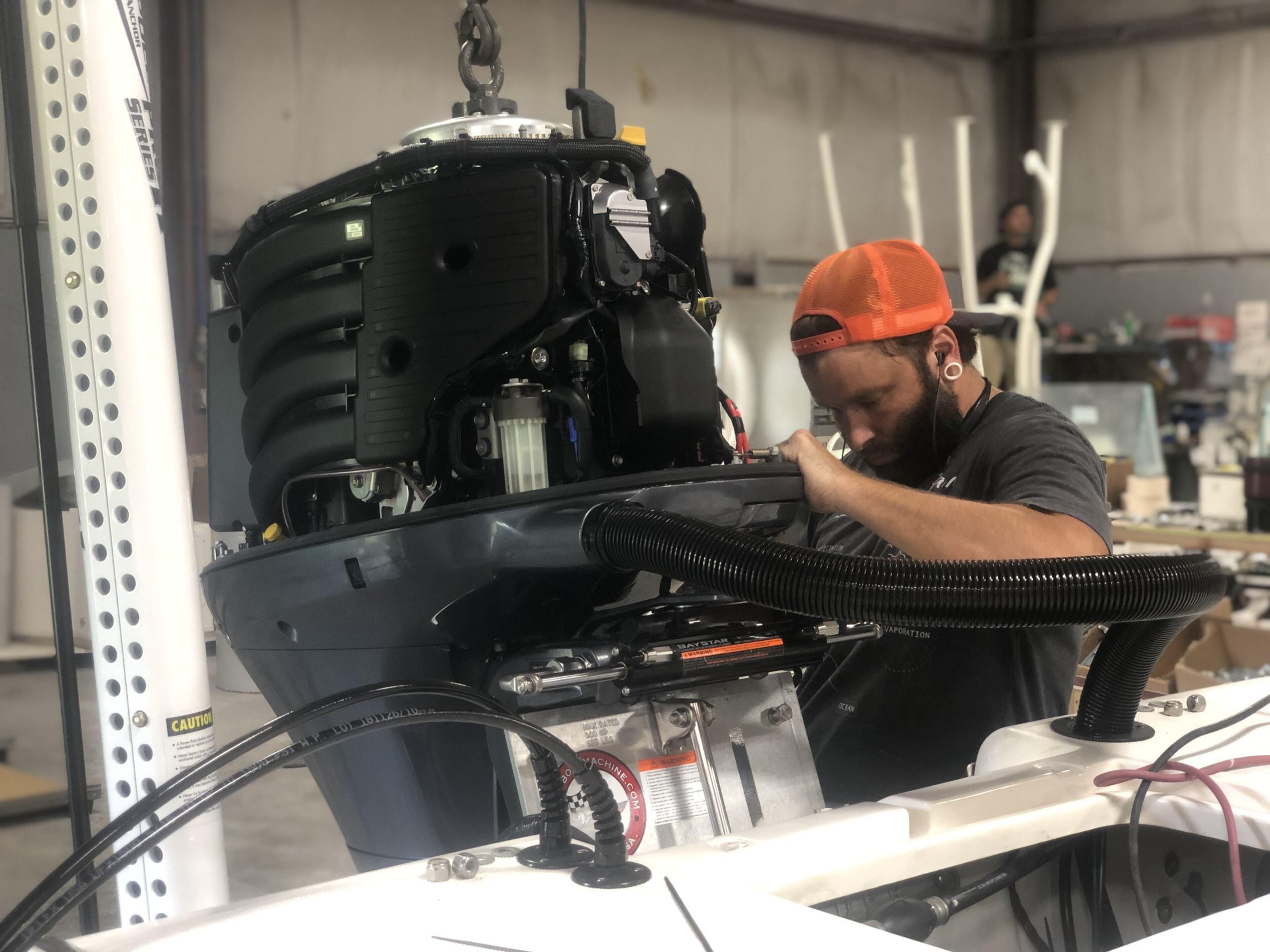Georgia boat-building industry’s confidence dented by trade wars

Georgia’s large boat-building industry is facing growing headwinds from President Donald Trump’s import tariffs and trade wars.
Builders were able to navigate retaliatory tariffs from Mexico, Canada and the European Union last year, but this fall’s escalating row between the U.S. and China is taking uncertainty and costs to a higher level. Some businesses are bracing for a slowdown and scaling back investments.
“The problem is, I build big expensive toys,” said Wally Bell, owner and founder of Composite Research, which makes Spyder, Sea Born and Sundance boats. “If the economy grows only 1%, it is easy to delay big-ticket play toys.”
Bell’s sales have grown this year but he is holding off on a new building, his seventh, to expand capacity in Blackshear, about 40 miles north of the Florida border.
“I am just reluctant to pull the trigger on spending that money. I am probably not going to spend it until we get a little better visibility,” said Bell, whose company builds more than 500 boats a year.
From Yamaha Motor Corp.’s U.S. motorsports division headquarters in Kennesaw to a number of prominent builders on the coast and south Georgia, the state’s boating industry employs about 10,000 workers directly and about 5,000 indirectly in jobs such as sales and maintenance. It creates $632 million in direct spending for boats and accessories in the state, according to the National Marine Manufacturers Association.
American-built boats incorporate Chinese components, from the fiberglass in the hull to engines and the polished stainless steel steering wheels and electronics. As the trade war heated up last year and the U.S. introduced import tariffs, costs for builders began rising. Tariffs are paid by U.S. importers, not Chinese manufacturers.
Trump imposed 25% tariffs on many boating components in July and those will ratchet up to 30% October 15. That comes in the wake of increased aluminum costs in mid-2018, thanks in part to 10% import tariffs on most foreign aluminum. Add everything up, and the cost of a $30,000 pontoon boat might have risen $7,000, said Nicole Vasilaros, the association’s senior vice president of government and legal affairs.

On Sept. 1, American consumers also began paying 15% tariffs on a new range of Chinese-made goods related to the boating industry, such as fishing gear, anchors, skis and wakeboards and life preservers, loading the industy with even more of a burden from the trade war.
Bell, at Composite Research, wanted buyers to know why their prices were going up. His average boat, mostly outfitted with Yamaha motors, sold for $78,000 this year, and about $2,300 of that was the cost of the rising tariffs. He asked his boat dealers early this year to put line items on customers’ sales invoices to explain the increases.
“The dealers understood it, but didn’t like it,” he said. “This year when we did the price book, we hid that in there to hold down the fervor.”
The latest tariffs are the second economic wave to rock the U.S. boating industry during Trump’s trade wars. When the U.S. imposed tariffs on foreign steel and aluminum in 2018, Canada, Mexico and the European Union slapped double-digit tariffs on American boats, causing export sales to plunge. The countries negotiated an agreement that lifted the boat tariffs by May of 2019, but damage had been done.
Marine Products, the state’s largest boat builder with the Chaparral and Robalo lines, sold 5,340 boats in the U.S. and internationally in 2018, according to its annual report. It noted international sales increased 14.9% in 2018. But the company’s 2019 second-quarter report noted export sales dropped 40.5% compared with the same quarter the year before. Overall, boat sales in the second quarter fell, though price per unit was higher. The company said tariffs on boats imposed by importing countries was the primary culprit, coupled with the strong U.S. dollar.
The U.S. and world economies are beginning to exhibit some weakness, also giving boat builders pause. The Institute for Supply Management’s U.S. manufacturing index dropped from 51.2 in July to 49.1 in August. Measurements below 50 mean industries contracted. U.S. economic growth slowed from 3.1% in the first quarter of 2019 to 2.1% in the second.
“I think it’s politics and news driven,” said Paul Hoppes, president of Sailfish boats in Cairo, south of Columbus, about the signs of slowing.
The average buyer of a high-end boat is more affected by news that the economy might be slowing than the consequences of spending a few thousand dollars in tariff costs tacked on to the final price.

“They are trying to talk us into a recession, so we quit spending,” said Hoppes.
He said consumers stopped spending on boats as the last recession kicked in, and didn’t spend again until 2010. He’s predicting a slowdown.
“I would expect the market to be flat for the next 24 months,” after 5% to 6% annual sales growth at Sailfish the last several years.
Vasilaros, of the marine manufacturing association, said the group understands and agrees with the goals of the trade negotiations. But while something has to be done about China, she said he tariffs are weighing heavily on her industry and are an ineffective way to solve the problems.
“There’s a lot of uncertainty from day to day. We don’t know if the tariffs are going to be removed or hiked up,” she said.
“I will say, anecdotally, that many manufacturers are just not hiring because of all the uncertainty in the past 18 months,” she added.
Why it matters
The Atlanta Journal-Constitution has been reporting on the economic impact of tariffs and trade wars on Georgia businesses and industries. Previous articles have addressed the impact on the state’s agriculture and home building industries, among others. Boat-building is one of the state’s economic engines, generating 15,000 jobs and more than $630 million in direct spending, according to the manufacturer’s association.
An earlier version of this story misstated the dollar amount of Chinese boat parts that American builders use yearly. The National Marine Manufacturers Association says it cannot estimate what portion of the $34 billion tranche of goods are boat parts.



